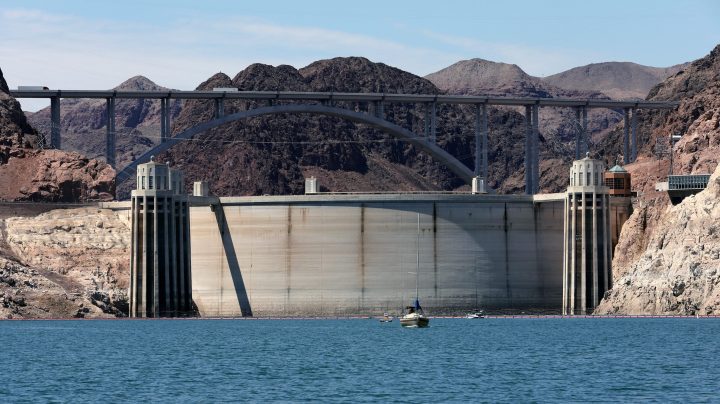
How drought zaps electricity production and could raise prices
How drought zaps electricity production and could raise prices

We are in a drought. That “we” includes people in California, but also everyone in the Western United States and Texas, and also in Norway and China.
It’s easy to see how drought affects farming, but it turns out water plays a big role in another sector we’ve been talking about a lot these days, one that’s been struggling with its own set of shortages: the energy industry.
The first thing that comes to mind when we think of the connection between drought and electricity is dams.
“Hydropower plays a very unique role in our electricity grid,” said Caitlin Grady, who studies the energy-water nexus at George Washington University. “Because even though it’s not a very large percentage of our total sort of electricity generation, it’s used for really important purposes.”
For example, when power demand peaks, hydro can be used to meet that demand in short order. Hydropower is also used to start power plants back up when they’ve been shut down for whatever reason. That’s called a black start.
But Ashlynn Stillwell at the University of Illinois Urbana-Champaign said it’s not just hydropower that’s affected by water shortages.
“The larger amount of electricity production in the United States, bigger than hydropower, is thermal power generation,” she said. That includes coal, natural gas and nuclear power plants. They’re burning fuel that generates steam that moves a turbine.
And you need water to make that steam. Not only that, those plants need water as a cooling agent.
“And so consequently, those power plants, those thermal power plants, are dependent on water to cool the system to generate electricity,” Stillwell said.
And if power plants can’t get water, they’re going to have a hard time producing that electricity. That’s a big problem during times like the summer when demand is really high, creating scarcity.
“Which would mean an increase in wholesale electricity prices at least in the short term while these drought conditions persist,” said Yael Glazer, a research associate at the University of Texas at Austin.
She said if that continues, she suspects those higher prices will eventually make their way down to ratepayers.
There’s a lot happening in the world. Through it all, Marketplace is here for you.
You rely on Marketplace to break down the world’s events and tell you how it affects you in a fact-based, approachable way. We rely on your financial support to keep making that possible.
Your donation today powers the independent journalism that you rely on. For just $5/month, you can help sustain Marketplace so we can keep reporting on the things that matter to you.











